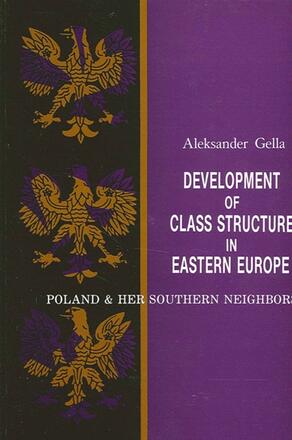
Development of Class Structure in Eastern Europe
Poland and Her Southern Neighbors
Alternative formats available from:
Description
Emphasizing the development of class structure, this book is the first in English to describe the historical and social development of Poland, Czechoslovakia, Hungary, and Romania from medieval feudalism to modern capitalism. Historically these countries have maintained mostly peaceful relations among themselves in the past and now share the common characteristic of being Soviet "satellites. " The author has devoted particular attention to Poland because of its unique political system, as well as its greater size, population, and cultural influence. The book is divided into three sections: part one reviews the early history and social structure of each country; part two provides a sociological analysis of social classes and their evolution over centuries; and part three examines the effect that World War II has had on these social classes.
Aleksander Gella is Professor of Sociology at State University of New York, Buffalo.
Reviews
"To my knowledge, this book gives the first synthetic sociological analysis of the complicated social structure of selected countries in Eastern Europe. The analysis itself is penetrating, the text dense and succinct. ..and the argumentation presented is clear and convincing. " — A. Podgorecki, University of Pennsylvania
"Gella relates different national experiences and correlates what happens to classes in a new and significant way. " — Thomas Blakeley, Boston College